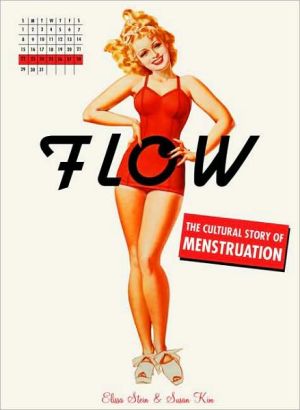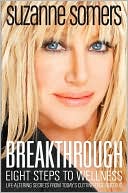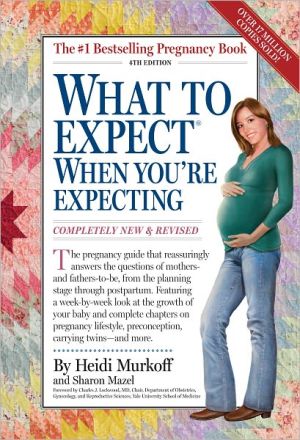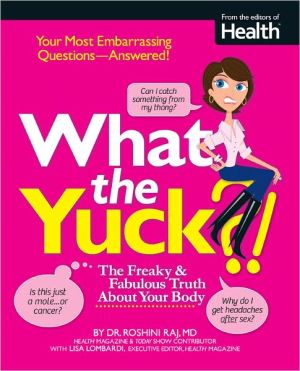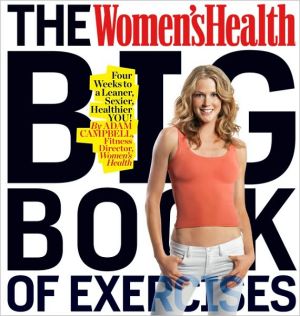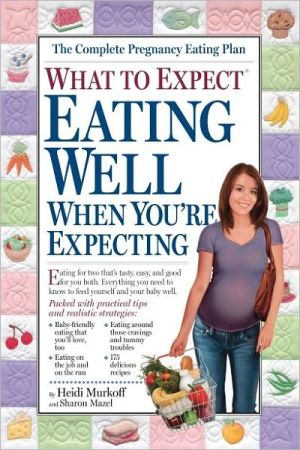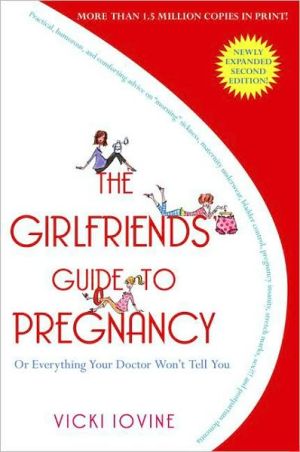Flow: The Cultural Story of Menstruation
In this hip, hilarious and truly eye-opening cultural history, menstruation is talked about as never before. Flow spans its fascinating, occasionally wacky and sometimes downright scary story: from mikvahs (ritual cleansing baths) to menopause, hysteria to hysterectomies—not to mention the Pill, cramps, the history of underwear, and the movie about puberty they showed you in 5th grade.\ Flow answers such questions as: What’s the point of getting a period? What did women do before pads and...
Search in google:
In this hip, hilarious and truly eye-opening cultural history, menstruation is talked about as never before. Flow spans its fascinating, occasionally wacky and sometimes downright scary story: from mikvahs (ritual cleansing baths) to menopause, hysteria to hysterectomies—not to mention the Pill, cramps, the history of underwear, and the movie about puberty they showed you in 5th grade. Flow answers such questions as: What’s the point of getting a period? What did women do before pads and tampons? What about new drugs that promise to end periods—a hot idea or not? Sex during your period: gross or a turn-on? And what’s normal, anyway? With color reproductions of (campy) historical ads and early (excruciating) femcare devices, it also provides a fascinating (and mind-boggling) gallery of this complex, personal and uniquely female process. As irreverent as it is informative, Flow gives an everyday occurrence its true props – and eradicates the stigma placed on it for centuries.
Flow\ Chapter 1\ LANGUAGE\ FOR YEARS, FEMINIST SCHOLARS COMPLAINED BITTERLY that menstruation was a taboo subject in the United States. Back in the 1970s and early 1980s, you could hear the dark mutterings in women's health collectives and alternative bookstores across the country: Society kept any serious discussion of a woman's monthly cycle locked away in a figurative hut of superstition, sexism, and ignorance, far away from men, children, and the rest of polite society.\ But of course, that was then, this is now. These days, what subject isn't talked about in broad daylight, right out loud—not only at home and at work, but on TV, in so-called family movies, on your very computer as you sit there innocently surfing the Web? It's quite possible, in one not very exciting day at home, to stumble upon detailed descriptions and actual videos that explicitly refer to not only menstruation but numerous other bodily parts and functions that would make even your hard-boiled, tough-talking Aunt Freida blush.\ Menstruation is everywhere! Why, in 2007, they even ran a nationwide commercial promoting menstrual suppression right before the Oscars, for Pete's sake! Check out the commercials on daytime programming, pick up any magazine aimed at women or teenage girls. It's like the tampons and pads are practically leaping off the screen and out of the pages to get at you! If there really was any kind of taboo against menstruation, it's a thing of the distant past, isn't it?\ Well, yes ... and no.\ The catch—and it's a big one—is that whenever menstruation is mentioned these days, it's only because there's an underlying sales pitch. Either that, or it's the subject of a complaint or the punch line to a joke. Or all of the above. There's no real discussion of the actual event itself—not just the physiology and hormones of menstruation, but its complex history, its place in society, the inescapable role it plays in every woman's life, and its ramifications for our health, the environment, and our lives. (And we're sorry, no matter what any fifteen-year-old tells you, vulgarity alone does not count as honest discourse.)\ The sad fact is that menstruation—the process, the images, the word itself—is as unspeakable and undercover as it ever was. Think about it—even in movies, TV shows, and commercials that actually mention menstruation by name, you never, ever see any sign of it. In fact, although you can watch buckets of fake blood merrily sploodging out of heads and torsos because of fists, bullets, knives, car accidents, grenades, bombs, breaking glass, garrotes, machetes, falling buildings, swords, laser beams, airline crashes, or hungry mutant zombies, rarely will you ever see a single drop as a result of menstruation. In 1995, a Village Voice cover featured a tasteful photo of a naked woman in profile, with a white string nonchalantly dangling between her thighs (the article was on Toxic Shock Syndrome), and from the subsequent outcry from readers, you would have thought the paper had endorsed Satan for president. (And this is theVillage Voice we're talking about, the paper that has routinely covered everything from genital piercing to golden showers.)\ Even in the most up-to-date print ad or TV commercial, you will never once see a menstrual product being unwrapped, applied, inserted, tugged at, yanked out, pulled off, wadded up, wrapped in toilet paper, flushed, or thrown away—God forbid showing a before-and-after shot of a tampon (now that's a memorable visual!) or what it looks like when you accidentally spring a leak. The ads don't even show the inside of a bathroom, which is weird, considering that's where most tampons and pads are inserted or applied in the first place.\ Whenever menstruation is mentioned these days, it's only because there's an underlying sales pitch.\ The accompanying ad copy is invariably as bloodless as the images—neutral, soothing, and maddeningly vague. You can stare endlessly at a print ad featuring a beautiful woman walking across a field in a flowy gown, ponder the tagline "fresh, free, and natural"until your head feels like it's going to explode, and still come away not knowing what the hell they're selling: Is it air freshener? A new line of hemp clothing? A timeshare in the Poconos?\ The first time the word "period"was even mentioned in the entire history of TV advertising was in a Tampax commercial starring, funnily enough, Courteney Cox Arquette—and that wasn't until 1985! The Red Dot campaign by Kotex was the first to use the words "period" and "red," and that rabble-rousing piece of subversion didn't even occur until 2000.\ Yet despite the ad world's contorted attempts not to show or say anything that could be seen as even remotely scandalous or off-putting, their efforts are apparently still not enough for most people. From what we can tell, public attitudes haven't changed much at all over the decades; as a result, menstrual ads have remained so incredibly sterilized and unspecific, you could look at them and honestly not even realize human blood was involved.\ And it's not just a problem with advertising. Our language itself has essentially been purged of menstruation, like there's been some kind of creepy propaganda campaign forcing us to discuss it (if we do at all) in a mysterious code known only to CIA operatives. If you don't believe us, take a moment to consider the many, many ways we all refer to menstruation.\ You're on the Rag. Your Friend's in Town, or maybe it's your Aunt Flo Who's Come to Visit, or your Aunt Ruby, or, for the sports-minded, the Red Sox Have a Home Game. Expressions for menstruation range from the jaunty (Saddling Up Old Rusty, the Tomato Boat Has Come In, a Visit from Cap'n Bloodsnatch) to the descriptive and occasionally gross (the Bleedies, the Dam Has Burst). There's also the essentially grim and resigned (the Curse, the Crud, the Misery, Monthly Trouble, the Nuisance, Being Unwell, Out of Commission).\ Hey, it's always fun to complain, especially if it's about something inevitable (taxes, jury duty, that weird skin under your chin once you hit forty). Humor, after all, is the time-honored way we deal with discomfort, anxiety, and fear. What fits the bill better than menstruation? Even if you're a perfectly well-adjusted, in-your-body kind of gal, who can resist telling her friends she's like Picasso in His Red Period or that she's Riding the Big Red Cadillac Down the Avenue of Womanhood?\ There are creative film references for the pop culturists out there (Taking Carrie to the Prom, Miss Scarlett's Come Home to Tara), as well as endless uses of the word "red" (Code Red, Wearing the Red Badge of Courage, Off Visiting the Red Planet, Riding the Red Tide, Driving Through the Redwood Forest). If you're Having Ketchup with Your Steak, you might have to Walk Like an Egyptian or go Ram a Tam; if the Communists Have Invaded the Summer House, you probably need to go Change Your Cooter Plug or Straddle a Pad.\ Look, we enjoy a good laugh as much as the next gal. Yet what freaks us out is that beneath all the bonhomie lurks the very real and unspoken message that as much as we're encouraged to make light about menstruation, we're somehow not supposed to be talking about it seriously. Is it just us, or don't you find it sinister when, say, a female lawyer in her thirties who can usually discuss anything from the G-8 summit to Etruscan pottery coyly lets slip that It's Arts and Crafts Week at Panty Camp?\ And in case you were wondering, this isn't just the crazy, puritanical ol' US of A we're talking about here. Even those hip, sexy, sophisticated countries you think would be so over body shame have jokey expressions for the whole process. Worldwide, we've lost count, but we think there are currently about sixty trillion euphemisms for menstruation.\ In the Netherlands, you might say De Tomatensoep Is Overgekookt (the Tomato i Soup Is Overcooked); if you're Brazilian, it might be Estou com Chico (I'm with Chico); if you're Chinese, it's Little Sister Has Come; in Latin America, Jenny Has a Red Dress On; in Australia, I've Got the Flags Out; in Denmark, Der Er Kommunister i Lysthuset (There Are Communists in the Funhouse); in Ireland, I'm Wearing a Jam Rag.\ People around the world have apparently taken to creative euphemizing with the zest of game show contestants. In England, there's I'm Flying the Japanese Flag (get out your Flags of the World placemat if this one eludes you); in Japan there's Ichigo-chan (Little Miss Strawberry); in France, Les Anglais Sont Arrives! (The English Have Arrived, presumably in their traditional red coats). In Germany, it's Die Waldbeerfrau Kommit (the Cranberry WomanIs Coming) or Ihren Kram Haben (Have Your Trash); in Puerto Rico they ask, ¿Te Cantó el Gallo? (Did the Rooster Already Sing?). In South Africa, Granny's Stuck in Traffic. And in Finland, PMS is charmingly referred to as Hullun Lechman Tauti, or mad cow disease.\ FIVE THINGS WE DIDN'T KNOW BEFORE WE WROTE THIS BOOK\ 1. Your period on the Pill isn't really a period.\ 2. Doctors once stimulated patients to clitoral orgasms as treatment for hysteria.\ 3. Bloodletting came about to mimic menstruation, which was seen as a way to relieve bodies of noxious blood.\ 4. Hormone replacement drugs are made from the urine of pregnant mares.\ 5. There's a thriving menstrual porn industry.\ Despite the humor and even the occasional grossness used to describe this most basic of female functions, what's actually taboo is any serious discussion of menstruation. If you don't believe us, just try this experiment: stroll into your next dinner party, family cookout, postwork happy hour—anywhere there's a reasonable mix of men and women, young and old—and try striking up a serious group conversation about, say, dioxin in tampons and its possible link to endometriosis. Watch as the faces around you swiftlyturn to stone, as elderly relatives start to choke on the three-bean salad, as mothers whisk the kids away, as the menfolk get that strained look we know so well. Skirts will be drawn aside, and voilà! In a New York minute you will have become persona non grata.\ Now, why is this?\ We're not being annoyingly naïve here, so please bear with us. To you, this may seem like a weird question because the answer is so obvious. Nobody talks about menstruation because it's so, well, inherently distasteful. Plus, it's personal. Right? To many if not most women, a serious discussion about one's monthly flow in polite society is about as much of a conversational nonstarter as religion, how much money people make, and an in-depth analysis of one's genital warts.\ Yet we have the sneaking suspicion that these seemingly unshakeable convictions of ours actually arise from centuries of calculated shame, moderated by money—with a dash of internalized objectification thrown in for good measure—as well as a genuine, centuries-old fear and suspicion of female body processes.\ Paranoid? Who, us? Like flat-earthers laughing at crazy old Christopher Columbus who was so obviously about to go sailing off the edge of that ocean, many women may find it hard to believe that we all in fact have swallowed a line so completely that we can't even imagine life without it. And yet, bear with us a second as we mull this further.\ In her book The Curse: Confronting the Last Unmentionable Taboo: Menstruation, Karen Houppert makes the point that even in these supposedly modern times, menstruation is always referred to with depressing, loser-ish verbs ("decay," "shred," "shrink," "slough," "disintegrate," "dribbles," "discharge"), whereas ejaculation gets all the sexy, empowered, action-hero verbs (like "spurt," "spray," "pump," "shoot"). Be honest—with verbs like those, if you had to be a biological process, which would you rather choose? Even textbooks and gynecological literature make menstruation seem so, well, dweeby and passive: that what's actually going on, far from being the dynamic, incredibly complex process it is, is instead vaguely pathetic. We are left with the impression that the sad-sack uterus (pun intended) has once again not been asked to the pregnancy prom, so it just stays at home and lets it all go—that menstruation is, essentially, a lame combination of inertia and failure.\ Language illustrates a basic tension: that people may talk about menstruation, but only when they reduce it somehow, dismissing it as the disgusting, eye-rolling nuisance everyone agrees it is. Periods are thus perceived as a dreary thing that happens to us—and not a complex and active process that is actually an integral part of our breathing, sweating, digesting, thinking bodies.\ The underlying problem is something that the canny French philosopher Simone de Beauvoir put her nicotine-stained finger on in her groundbreaking 1949 book, The Second Sex: that in a world pretty much defined and dominated by men, women are seen as nothing more than the "other" sex, existing relative to the guys. Therefore, we stare with dismay at our own bodies, the way a landscaper might when faced with an especially unpromising patch of weedy, rocky, lumpy ground that must be ruthlessly weed-whacked into shape. Ever critical of the nagging unpredictabilities of our bodies, we're beset by anxiety, knowing we're supposed to be clean, dainty, and in control—and periods (All that blood and bloating! Those cramps! Such a temper!) are anything but.\ So how does language fit into all of this?\ In every conversation we have, the words we use to describe our bodies and their processes not only reflect but actually reinforce how we feel about them and how other people perceive them. This is why certain spokespeople get to go on the lecture circuit and make tons of dough talking about the power of positive talk ... because it's actually true. The same is true for negative language. If, say, you decide to introduce a new proposal at the office with, "Here's another bad idea you're gonna think really sucks," chances are pretty good you've already shot yourself in the foot.\ What makes all of this especially sinister is when we suddenly realize (like in our favorite scary story when the babysitter realizes the killer is actually calling from upstairs!) that the words we use, along with all their associations, have been already chosen for us years ago, in some cases even centuries ago. And by not questioning the words we've been programmed to use, we have indirectly absorbed their witchy power.\ Consider the word "hysteria." A rampantly popular diagnosis for centuries, it comes from the Greek word hystera, or "uterus." The ancient Greek doctor Hippocrates (ca. 460 B.C. to 370 B.C.), normally such a swift guy that he was known as the father of medicine, seriously believed that the hystera was wont to wander around a woman'sbody. We're not kidding; he thought the uterus literally liked to mosey around a woman's torso, into her chest, and sometimes right up into her throat, in its never-ending search for children. Those ramblin' ways allegedly caused hysteria, a supposed illness that was still being diagnosed in women up until the early twentieth century.\ In terms of language, there were no separate words for female genitalia for thousands of years. That was mostly because women were considered pretty much the same as men, only of course flimsier, more poorly designed, and incapable of writing in the snow. As a result, people used the same words to describe male and female organs: the ovaries were considered the female testicles, the vagina a penis, and so on. So how did anyone talk about menstruation, you might wonder? The answer: rarely, and in the vaguest possible terms.\ Even today, advertisers and manufacturers tiptoe around the actual words, which are presumably too scary and horrible for our ladylike ears. Commercial menstrual products are commonly referred to as feminine "protection"; but this begs the question, protection against what? Against our big, mean uteruses and those psychokiller ovaries? Not to put too fine a point on it, but would you ever call a tissue "nose protection"?\ Even the expression "feminine hygiene" implies that menstruation is fundamentally dirty, yecchy, bad, as does the expression "sanitary pad." Depending on your taste, menstrual flow may not be the most aesthetically bewitching substance you'll ever hold in your hand, but it's certainly not inherently unsanitary, either. Yet advertising, by continuing to refer to menstruation in such unrelentingly negative terms, reinforces the same message, over and over: that our monthly flow is a disgusting problem, a hygienic Three Mile Island, something so scary and awful that it definitely needs a solution. And don't worry, little lady: like a Fortune 500 knight in shining armor, guess who's volunteering to come rescue us from all that blood, that mess, our bodies?\ In fact, menstruation isn't a Thing that just happens to poor, passive, slobby ol' us a few days every month for a few decades. It's actually a complex event, so much so that doctors and scientists don't even fully understand it yet or what exactly it does. While it's true that most of us picked up the uterus-preparing-for-a-baby part by fifth grade, what we still don't know could fill a medical library. Only a few animal species on earth actually menstruate, humans among them. Why is that? How exactly is monthly bleeding tied to our health?\ A big part of the problem is that, overwhelmingly, studies on menstruation tend to be funded by the "femcare" industry itself, and only, of course, to better develop and market their products. (As a rule of thumb, if you ever wonder about a particularly upbeat study plugging a product, just follow the money, honey! You'll find that, routinely, experts and pundits are quietly on the payroll of the companies whose products they're so enthusiastically endorsing.)\ There have been more objective, scientific studies conducted over the years, but by and large, they tend to focus almost exclusively on the so-called pathological expressions of menstruation—not just the familiar downers like fibroids, endometriosis, and Lizzie Borden-esque PMS, but genuinely bizarro stuff (like the way women living together seem to bleed together, or when menstrual blood actually comes out of your nose).\ Not to sound paranoid or anything, but we can't help but note that very few, if any, science foundations, universities, and places of higher learning frankly give a rat's ass about healthy menstruation. The U.S. gov ernment itself created the Nationa Institutes of Health's Office of Women's Health in 1990, and for a while, their single most burning question about menstruation was, "Does it make women unfit for combat?"\ So where does that leave us? Totally in the dark? Screwed again?\ Well, we do know some things, for certain. We know that for nearly all women, menstruation is a normal, if wildly variable and profoundly subjective, life experience. Another thing we know is that it seems to involve not just our uteruses, ovaries, and vaginas, but much of the rest of our bodies, as well: our brains, glands, hearts, and other organs. What's more, no matter how old we are, if we're female, we're actually menstrual our entire lives: either pre-, menstrual, peri-, menopausal, or post-. And the stages of our lives are in a sense defined by where we are on the menstrual time line.\ Okay, we hear you demur. But why talk about it? We can envision certain relatives, friends, and colleagues pursing their lips en masse and rolling their eyes heavenward. "So this is what you want to talk about? With so much going on in the world, so many things to discuss, this is really so important?"\ To which we reply: absolutely.\ Recent studies show that up to 10 percent of girls still get their first period without any clue whatsoever as to what's going on (shower scene from Carrie, anyone?). What's more, college women consistently exhibit an amazing level of ignorance about the underlying biology of menstruation.\ It's downright bizarre that what's called "discussion" about this most complex yet universal of processes has become one almost completely moderated by business and medicine. We've been taught our talking points by people who are frankly far more concerned with their bottom line than with any of those pesky questions we might have.\ Hey, look—we're not saying that the pharmaceutical companies and femcare manufacturers are evil per se, or that their decisions are necessarily driven by some deep-seated misogyny or sexism. But business is business, and as of 2001, the so-called feminine hygiene business was a cool $2 billion industry—and that's just for the products themselves, not including related drugs or advertising.\ Whether we're aware of it or not, our relationship to menstruation is one that has been brokered not in our own homes, but at the supermarket, the pharmacy, and the doctor's office. The conversation about menstruation (if you can call it that) is strictly one-sided and has been smoothly co-opted by big business, with a little help from religion,history, and society ... and boy oh boy, do they have a lot to say.\ So what can we do?\ We can start by setting aside all the judgment and reexamining some of those crazy-making questions we've been ordered by society to be obsessed with since girlhood. (Do I smell? Does my pad show? Am I leaking? Did Harry from Accounting notice when the tampon fell out of my handbag?) How about we start asking other questions that are a lot more relevant to our lives today, like: Am I healthy? Is what I'm experiencing normal? Am I making the right choices for my body, my love life, my lifestyle, my planet? What's right for me? Am I teaching my daughters, my grand-daughters, my kid sister good lessons about being a woman?\ Enough with the ignorance and shame already! We say it's high time for a little more transparency. Let's perform a communal end run around the usual secrecy and embarrassment. Let's wrest control of this deeply personal topic away from the forces that have controlled it for so long. Armed with information and insight, maybe we can even figure out how to bring up the subject in polite company, without dying of mortification. Perhaps that way, we can spark a truly meaningful dialogue with ourselves, our friends, and our families about this most basic of functions ... and how it affects us all.\ FLOW. Copyright © 2009 by Elissa Stein and Susan Kim. All rights reserved. For information, address St. Martin's Press, 175 Fifth Avenue, New York, N.Y 10010.
\ From the Publisher“Its contents, I found, are plainspoken—perhaps it will start chipping away at the taboo…the style is important and groundbreaking.” –The New Yorker\ “There is probably no better book for moms who want their daughters to respect themselves in every aspect...One can only ask Stein and Kim,’What took you so long?’” –Booklist\ “Perfect for a preteen’s introduction to adulthood and for women of all ages, this is guaranteed to spark conversation about…whether this universal female experience is a blessing, a curse—or just part of life.” –Publishers Weekly\ “In many ways, Flow is a breakthrough.” –Daily Beast\ “Flow isn’t just a book; it’s a movement.” –January Magazine\ “With wit, sarcasm, and common sense…the authors convey a great deal of information in an approachable and straightforward way…An entertaining and insightful book for women of all ages.” –Library Journal\ “A witty look at the history of 'the nuisance'…for women of all agees. Who hasn’t wondered why we get a period, what women did before the invention of the tampon—let alone the pad. Flow explains all.” –Body And Soul Magazine\ “Flow is a beautiful book (coffee table worthy!) and quite educational, while keeping you laughing. There are some amazing factoids in here! (psst...There should be a trivia board game that goes along with this baby.) And the vintage ads are fab. Courteney Cox Arquette was the first person to say period in a commercial. I believe that Cybil Sheppard and Laurie Laughlin are in a few ads too. Did you know that the Hite Report didn't say anything about our periods? Lots of fun facts to wow your friends during the next girls night out!” –Viva La Feminista\ \ \
